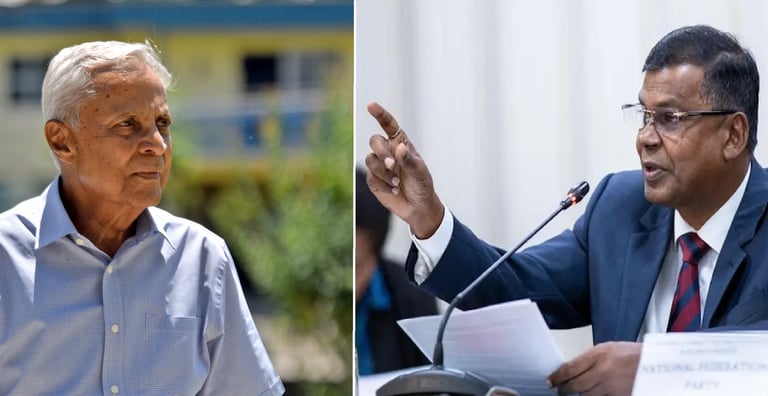Hollow Statistics Says Chaudhry, While Prasad Says “He’s Never Happy”
FIJI NEWS


Fiji Labour Party Leader Mahendra Chaudhry has dismissed the recent drop in inflation as “hollow statistics,” accusing the Coalition Government of painting a misleading picture of economic relief while ordinary Fijians continue to struggle with the rising cost of living.
Responding to the official Consumer Price Index (CPI) data showing Fiji’s annual inflation rate had dropped to -0.9% in April 2025 — the first negative year-on-year inflation in nearly four years — Chaudhry said the figures failed to reflect the real hardships faced by working families, pensioners, and the vulnerable.
“Inflation may have dropped, but this does not mean the cost of living has become affordable,” he said in a statement. “The prices of essentials—food, transport, utilities, and housing—remain exorbitantly high, driven largely by the government’s ill-conceived 15% VAT increase.”
Chaudhry claimed the Coalition had “shielded itself” from the economic fallout while ordinary Fijians bore the brunt of regressive tax hikes, underfunded social programs, and stagnant wages. He also criticised the Finance Minister’s claims of “targeted interventions” to ease living costs, calling them “laughable.”
In a strongly worded critique, the Labour leader accused Finance Minister Professor Biman Prasad of using “selective statistics” to downplay what he called a cost-of-living crisis.
But Hon Biman Prasad dismissed his attack.
Speaking briefly to Duavata News, the Finance Minister dismissed Chaudhry’s comments, saying: “Mahendra Chaudhry is not happy with any good news—he never is.”
The official CPI report released by the Fiji Bureau of Statistics showed the steepest deflation since May 2021, driven by a sharp decline in food (-4.3%), transport (-2.7%), and fuel prices. April’s -0.9% inflation figure also marked the lowest annual rate in nearly 20 years, indicating a potential shift toward deflationary trends. However, not all sectors saw relief, with prices for healthcare, restaurant services, and personal care items continuing to rise.
Fiji’s inflation is heavily influenced by external factors like global fuel prices, which directly impact transport and energy costs. Currency fluctuations and rising import costs—especially from major partners like Australia, New Zealand, and China—also drive domestic prices. In addition, global supply chain disruptions and natural disasters in the region can quickly push up the cost of essential goods.
The next CPI update is expected on 29 May 2025.